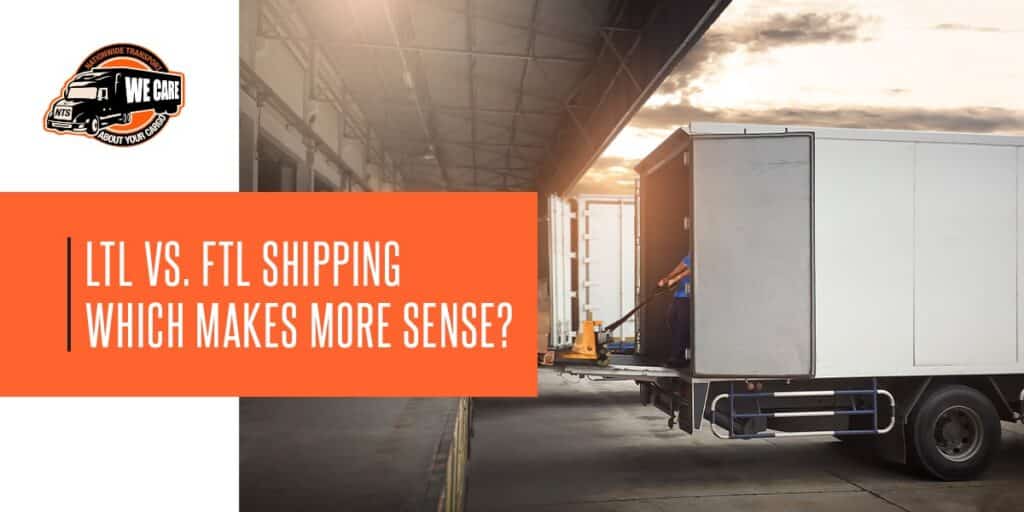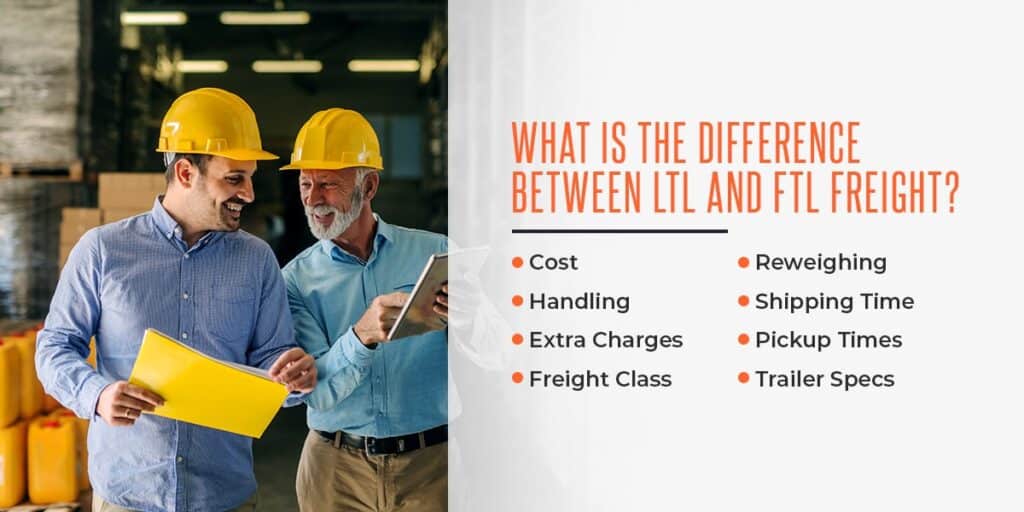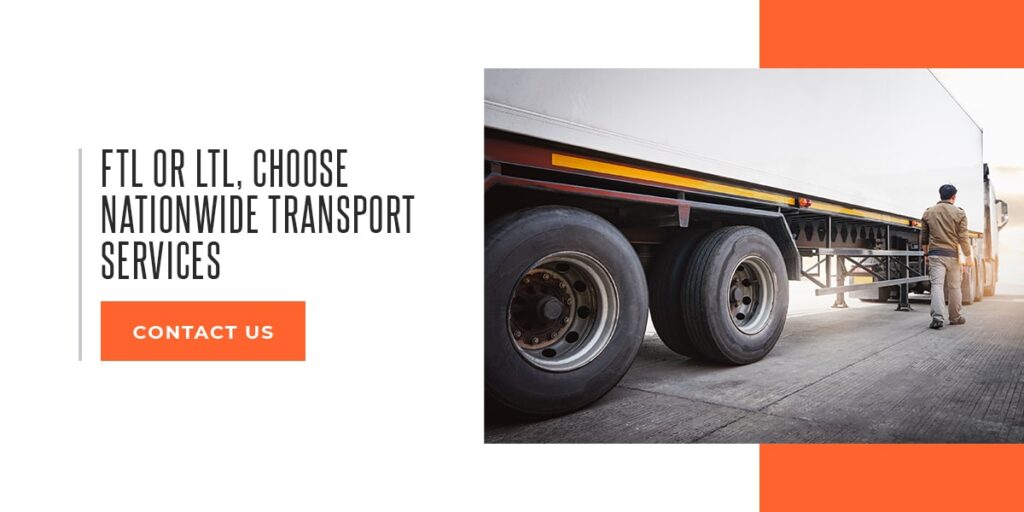
When shipping goods and products, you want to save money while ensuring a safe, successful journey. If you’re considering the various options available for your needs, you may have heard about LTL and FTL shipping. But what are these solutions, and could one of them be the answer you’ve been looking for?
FTL and LTL Shipping
FTL and LTL are acronyms describing different land shipping methods. FTL stands for full truckload. You may have also seen it written as TL, or truckload shipping. With FTL, the products you’re shipping will either take up the entire truckload or be the only products transported in that load.
LTL stands for less than truckload. With LTL, the products you’re shipping occupy a portion of the truckload. The rest of the load consists of shipments from other individuals or businesses to bring the trailer closer to its maximum capacity.

What Is the Difference Between LTL and FTL Freight?
When considering LTL vs. FTL, you must know the differences to choose the best one for your needs. Here are some primary distinctions between these two types of ground shipping.
Cost
LTL is an affordable option when the items you’re shipping will only take up a small portion of the truckload. LTL splits the cost of the entire truckload among all the parties that are shipping items. If you don’t have many pallets of products or goods to send, it makes sense to choose LTL.
FTL is more expensive than LTL because you must pay for the cost of the entire truckload, even if the items you’re shipping don’t take up all the available space. Still, FTL can be cost-effective if you’re shipping enough goods for a full truckload.
Handling
The LTL shipping method has many people’s goods — including yours — on the same trailer. That means there will be more stops along the way to deliver other people’s items and move the products from one truck to another. These instances increase the potential number of times someone handles your products during transit.
With FTL shipping, your products are the only ones on the trailer, so zero extra handling occurs from when the sealed trailer drives off until it reaches its final destination. Less handling decreases the likelihood of product loss, theft or damage during transit.
Extra Charges
When you ship with LTL, you may have to pay some unexpected, extra charges that arise from disruption or delays on the shipping route. Since you’re sharing the truckload with other parties, chances are higher that you’ll have to pay some accessorial charges.
Your shipment has the driver’s full attention when you ship FTL. These shipments could take several days of driving. For this reason, truckers are more forgiving when facing a couple of brief delays on their way toward your products’ destination.
Freight Class
The cost of trucking in LTL shipping primarily depends on the shipment’s freight class. Even the same items in one shipment can cost more in another, depending on the freight class. The National Motor Freight Traffic Association, Inc. sets the various freight classes for trucking shipments.
Often, carriers are less concerned with freight class when shipping FTL. Instead, these carriers are more interested in the type of products you’re shipping when calculating their pricing.
Reweighing
LTL carriers reinspect the products they’re shipping when they arrive at the origin terminal. After determining the dimensions and weights of pallets, an inspector will attach an updated or reclassified weight to your shipment, which can change the rate you expected to pay according to the bill of lading.
With FTL shipping, the driver will usually stop at a weigh station to verify it is under the legal limit of 80,000 pounds before continuing the journey. This extra step provides more predictable pricing with a lower chance of changing from reweighing and reclassifying.
Shipping Time
When you ship LTL, the driver must make several stops along the way to deliver all the different goods on their truck. They must also make stops to pick up other products or change trucks. These stops can contribute to longer shipping times.
FTL shipping is a single, straight journey for the delivery of your goods. There are usually few delays along the way, ensuring the shipment arrives at its destination as quickly as possible.
Pickup Times
LTL usually has flexible pickup times. The drivers must complete several pickups in a single route, requiring shippers to provide expected time frames.
FTL shipping maintains firm appointment times. As the only shipper involved in the process, you can expect to receive a set pickup time from your carrier as part of the value of paying for an entire truckload to ship your goods.
Trailer Specs
You’ll find the trailer specs differ between LTL and FTL. For instance, most FTL trucks have swing doors, while LTL trucks use high-roll doors. Note that high-roll doors will reduce the loading and unloading clearance by several inches because they stop slightly below the trailer’s roof.
LTL vs. FTL Shipping — Which One Should You Choose?
Now that you understand more about the differences between LTL and FTL shipping, you need to know which to choose based on your situation.
When to Ship LTL
LTL may be a better choice for you if any or all of the following are true:
- You have a small load.
- Your goods are durable to withstand extra handling.
- You want to save money on shipping costs.
- You have a flexible schedule to accommodate changing pickup times.
When to Ship FTL
In some situations, shipping your items via FTL may be the smarter option. Consider FTL if you meet these criteria:
- Your shipment is large enough to fill the entire truck.
- Your goods are fragile and should avoid unnecessary or excessive handling.
- You’re on a tight schedule and want firm pickup times.
- You have the money to afford FTL for faster shipping, even if your goods only fill up a portion of the truck.
FTL or LTL, Choose Nationwide Transport Services
Whether you want FTL or LTL shipping, Nationwide Transport Services can handle your needs. We specialize in many forms of shipping across industries and can ensure you get the best value and results when you ship LTL or FTL. We invite you to request a free quote today to get started or contact our team if you have any more questions about our services.
